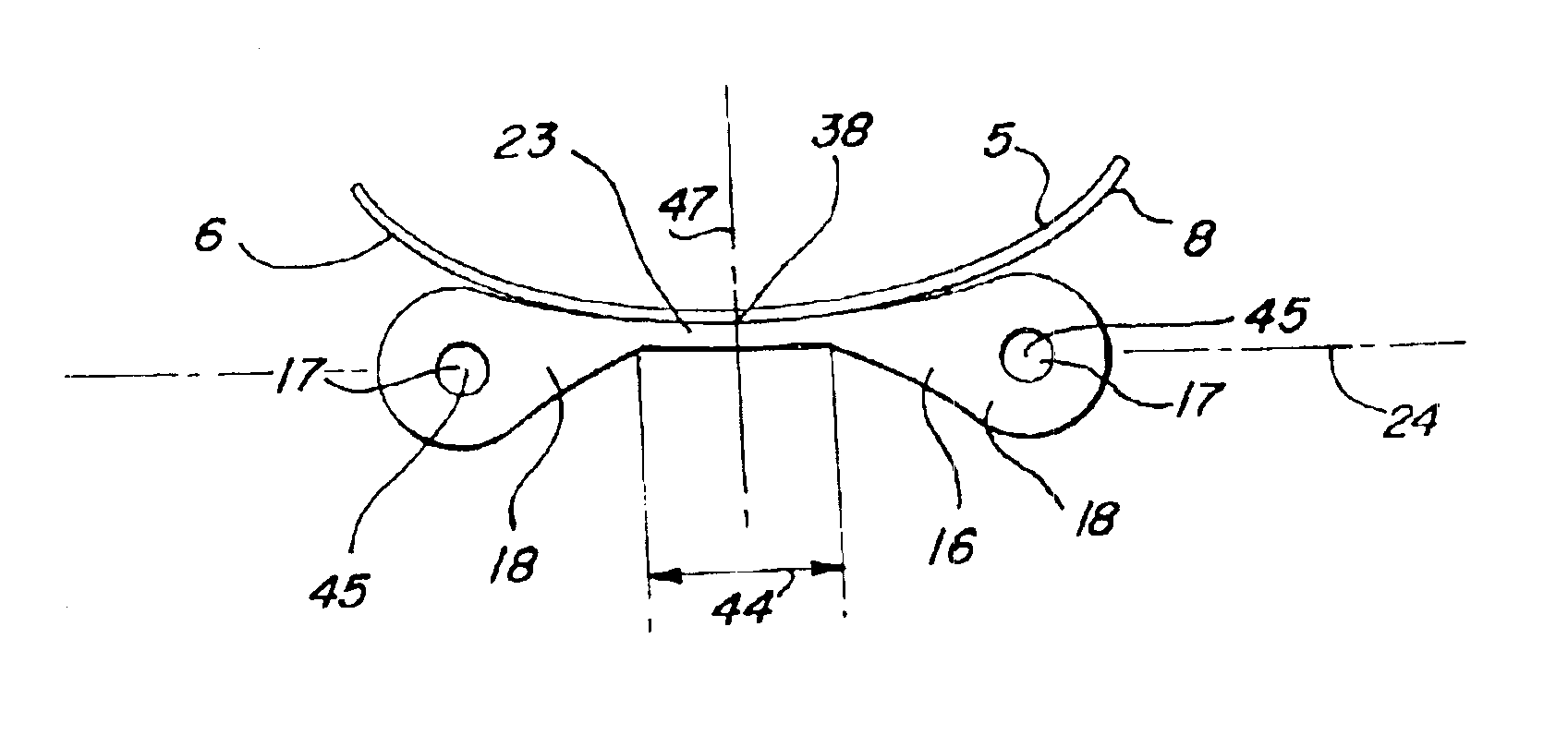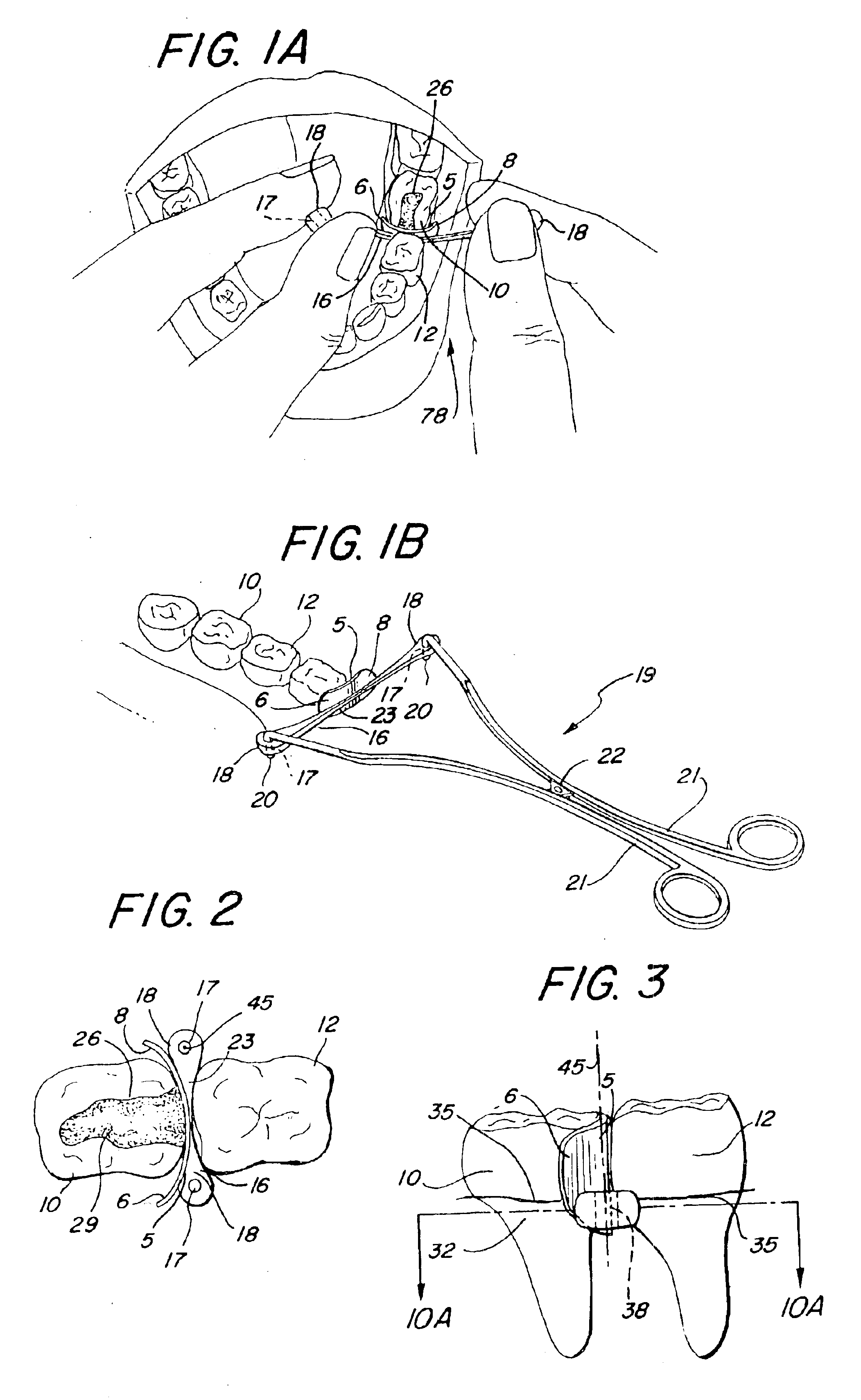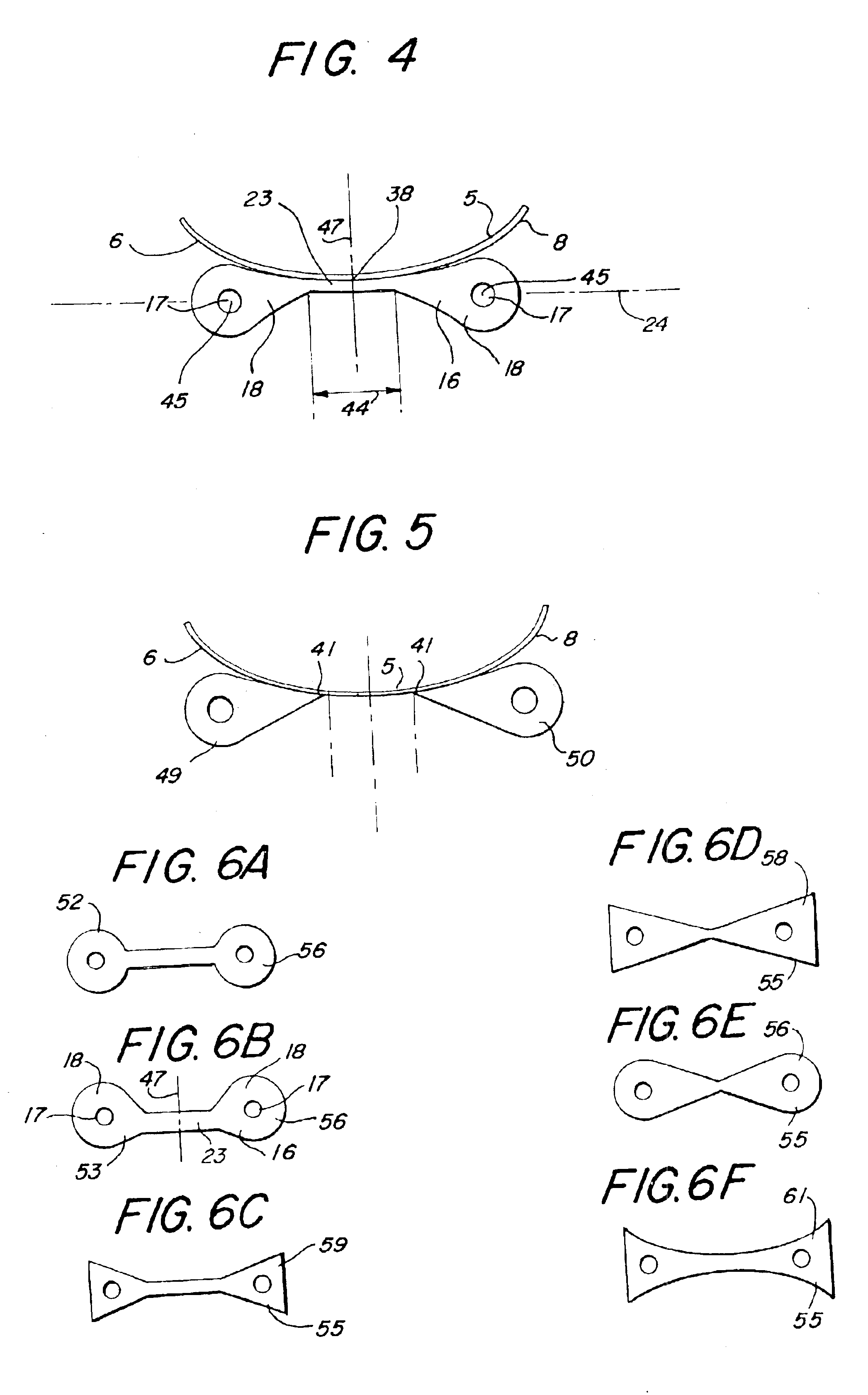Interproximal matrix with elastomeric wedge
a wedge and matrix technology, applied in the field of matrices and wedges, can solve the problems of gum tissue damage, discomfort or pain, difficulty in use, etc., and achieve the effect of greatly simplifying the method of placement and overcomplicating deficiencies
- Summary
- Abstract
- Description
- Claims
- Application Information
AI Technical Summary
Benefits of technology
Problems solved by technology
Method used
Image
Examples
Embodiment Construction
[0032]As depicted in FIG. 1A, an interproximal shim or matrix 5, having first and second ends 6, 8, is to be placed between a first object tooth 10 and a second adjacent tooth 12. The matrix 5 forms a barrier around a portion of first tooth 10. Advantageously, the instant invention will typically include a resilient wedge member 16 in combination with the matrix 5. The resilient wedge member 16 has through holes 17 in opposing enlarged end portions 18 of the resilient wedge member 16. The through holes are provided for aiding in gripping the end portions 18 of the resilient member 16. FIG. 1A shows how the resilient wedge member 16 works together with the matrix 5 in locating and stabilizing the matrix 5 between the two teeth 10, 12.
[0033]While FIG. 1A depicts placement of the matrix 5 and resilient wedge member 16 by hand, it is to be understood that the same placement is advantageously accomplished with a mounting tool 19. The mounting tool 19 has prongs 20 that engage the through...
PUM
 Login to View More
Login to View More Abstract
Description
Claims
Application Information
 Login to View More
Login to View More - R&D
- Intellectual Property
- Life Sciences
- Materials
- Tech Scout
- Unparalleled Data Quality
- Higher Quality Content
- 60% Fewer Hallucinations
Browse by: Latest US Patents, China's latest patents, Technical Efficacy Thesaurus, Application Domain, Technology Topic, Popular Technical Reports.
© 2025 PatSnap. All rights reserved.Legal|Privacy policy|Modern Slavery Act Transparency Statement|Sitemap|About US| Contact US: help@patsnap.com



